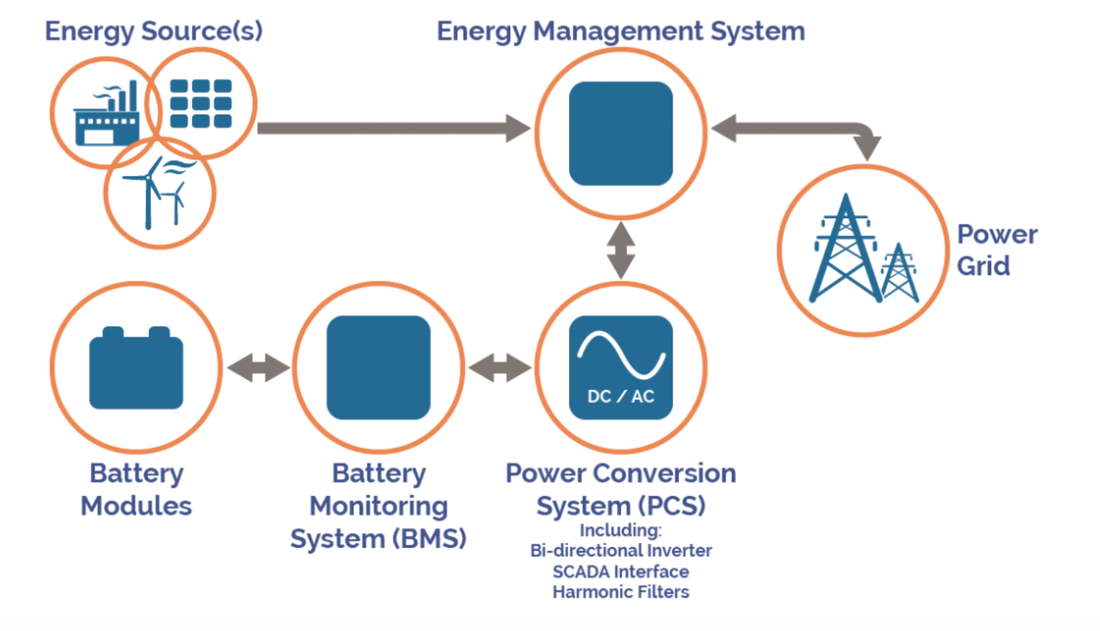Understanding the Role and Specifications of Battery Management System (BMS) in BESS Containers7/12/2023
In the world of energy storage, Battery Energy Storage Systems (BESS) have emerged as a game-changer. At the heart of these systems lies the Battery Management System (BMS), a crucial component that ensures optimal operation and longevity of the battery pack. This article delves into the specifications of BMS in BESS containers and why it's an indispensable part of the system. A BMS is a comprehensive system that manages a rechargeable battery (cell or battery pack), such as by monitoring its state, calculating secondary data, reporting that data, protecting the battery, controlling its environment, and balancing it. In BESS containers, the BMS plays a pivotal role in controlling battery operation, ensuring safety, and enhancing user experience. One of the key specifications of a BMS is its highly precise current temperature control. This feature allows the system to maintain the battery within its optimal operating temperature, thereby preventing overheating and ensuring the battery's longevity. Another essential specification is the highly efficient balance controlling. This feature ensures that all cells or battery packs within the system are equally charged, promoting uniform performance and extending the overall life of the battery system. The BMS also boasts a highly precise voltage inspection. This feature continuously monitors the voltage of each cell or battery pack, ensuring they are within safe limits and preventing any potential damage due to overvoltage. Active balance for heavy current is another critical feature of a BMS. It allows the system to handle high current loads efficiently, ensuring that the battery system can meet high power demands without compromising its performance or safety. Safety is a paramount concern in any energy storage system. The BMS provides multiple protection mechanisms, including overcharge protection, over-discharge protection, overcurrent protection, and temperature protection. These safety measures ensure that the battery operates within safe parameters, preventing any potential hazards. The BMS also provides a practical evaluation of the State of Charge (SoC), giving users a clear idea of the remaining charge in the battery. This feature is crucial for efficient energy management and planning. Historical event records are another valuable feature of a BMS. By keeping a record of all significant events, such as charge cycles, temperature fluctuations, and any incidents of overcharge or over-discharge, the BMS helps in predictive maintenance and troubleshooting. The BMS also enhances the user experience by providing a smart interface. This interface allows users to monitor and control various aspects of the battery system, making it user-friendly and easy to manage. Finally, a BMS is designed for high reliability. It is built to withstand harsh conditions and perform consistently over a long period, making it a reliable component in any BESS container. In conclusion, the Battery Management System (BMS) in BESS containers is a vital component that ensures the efficient and safe operation of the battery system. Its specifications, from precise temperature control to multiple safety protections, make it an indispensable part of any energy storage solution. Comments are closed.
|
Archives
July 2024
Categories
All
|
- Home
-
Containerised solutions
- Intelligent pressurised container | MUD logging cabin
- Battery energy storage system (BESS) container
- Flexible grid tied battery storage system
- Laboratory container | workshop container | Equipment containers
- Temporary refuge shelter | Toxic gas refuge | Safe haven
- Offshore accommodation cabin | office container
- Reefer container | Refrigerated container
- Intelligent waste water treatment container
- Fresh water generator container
- Cargo Containers
- Product photos & videos
- News & Blogs
- Contact us
|
Featured products
Intelligent pressurised container Temporary refuge (TR) shelter, toxic gas refuge (TGR) Battery energy storage system (BESS) container Containerised waste water treatment plant Fresh water generator container Reefer container Laboratory container, Workshop container Accommodation container Offshore closed container |
All Rights Reserved 2020 © TLS Offshore Containers / TLS Energy
|

